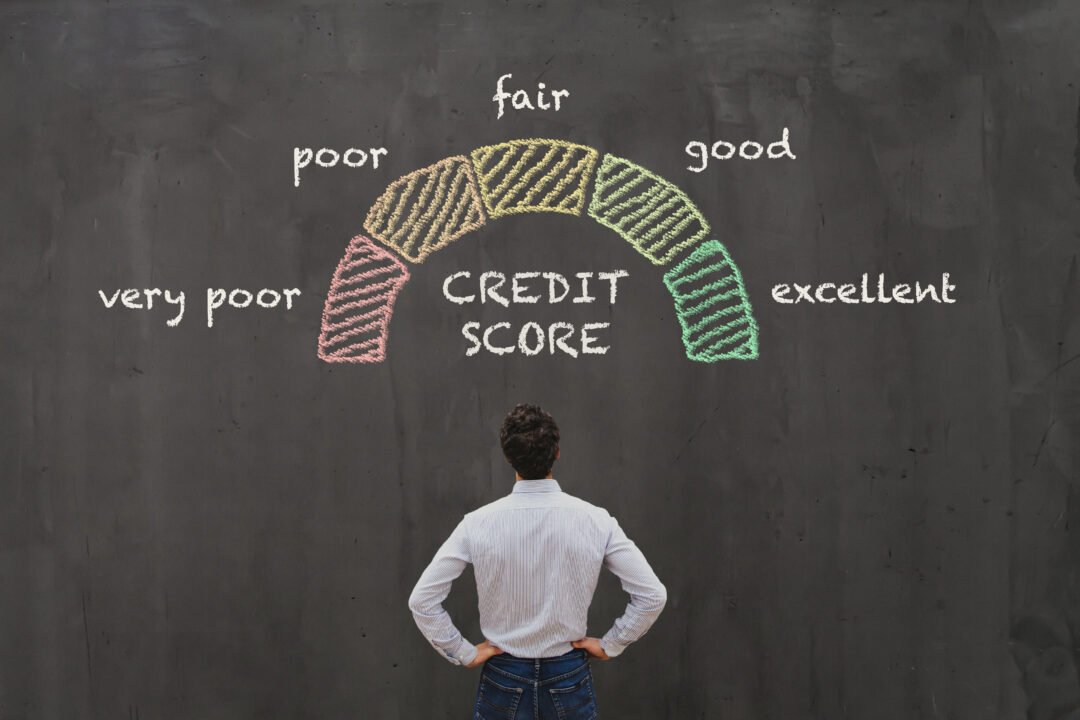Your credit score is a critical factor in determining your eligibility for loans, credit cards, and other forms of credit. There are several ways you can improve your credit score, including making on-time payments, paying down balances, avoiding unnecessary debt and more. But depending on your unique situation, it can be difficult to know where to start.
A good credit score can help you access better rates, larger loan amounts, and more favorable repayment terms, while a poor credit score can limit your borrowing options and increase your borrowing costs. The steps you need to take to improve your credit score fast will depend on the unique information contained in your credit report.
Whether you’re building credit from scratch or rebuilding after some credit missteps, understanding the factors that go into your credit score can help you determine which steps to take. With that in mind, here are seven ways to improve your credit score, how much impact they’ll have and how long it can take to start seeing results.
When you’re planning to apply for a loan, whether it’s for a home, car, or personal expenses, your credit score plays a huge role in determining whether you’ll get approved and what interest rate you’ll qualify for. A higher credit score can save you thousands of dollars in interest over time, so it’s worth taking the time to improve it before submitting your loan application.

READ MORE
All About Home Credit Cash Loan
Here are the steps to improve credit score before applying for a loan:
1. Check Your Credit Report for Errors
The first step to improving your credit score is knowing where you stand. Request a free copy of your credit report from the major credit bureaus. Review it carefully for any errors, such as incorrect account information, late payments that you actually paid on time, or accounts that don’t belong to you. If you find any mistakes, dispute them with the credit bureau to have them corrected. Even small errors can drag your score down, so this is a crucial first step.
2. Pay Your Bills on Time
Your payment history is the most significant factor affecting your credit score, accounting for about 35% of it. Late payments, even if they’re just a few days overdue, can hurt your score. To avoid this, set up payment reminders or automate your bills so you never miss a due date. If you’ve missed payments in the past, focus on getting current and staying current. Consistent on-time payments will gradually improve your credit score.
3. Reduce Your Credit Card Balances
The amount of credit you’re using compared to your total credit limit, also known as your credit utilization ratio, is another major factor in your credit score. Ideally, you should aim to keep your utilization below 30%, but the lower, the better. If you have high balances, create a plan to pay them down. Start by focusing on the cards with the highest interest rates or those closest to their limits. Reducing your balances can have a quick and positive impact on your score.
4. Avoid Opening New Credit Accounts
Every time you apply for new credit, a hard inquiry is added to your credit report, which can temporarily lower your score. While one or two inquiries might not make a huge difference, multiple inquiries in a short period can signal to lenders that you’re a high-risk borrower. Before applying for a loan, avoid opening new credit cards or taking out other loans. Instead, focus on improving your existing credit accounts.
5. Keep Old Accounts Open
The length of your credit history matters, so don’t close old credit card accounts, even if you’re not using them. Closing an account can shorten your credit history and reduce your total available credit, which may increase your credit utilization ratio. If you have an old account with no annual fee, consider keeping it open and using it occasionally for small purchases to keep it active.
PEOPLE ALSO READ
Personal Finance Tips for Young Adults With Student Loans
Top 10 Low Interest Personal Loans in Nigeria
Do Zero Interest Personal Loans Exist?
How Private Money Lending Works
6. Diversify Your Credit Mix
Having a mix of different types of credit, such as credit cards, installment loans, and mortgages, can positively impact your credit score. This shows lenders that you can manage various types of credit responsibly. If you only have credit cards, consider adding a small personal loan or auto loan to your credit profile. However, only do this if it makes financial sense for your situation. Don’t take on debt just to improve your credit mix.
7. Become an Authorized User
If you have a family member or close friend with good credit, ask if they can add you as an authorized user on their credit card. This allows you to benefit from their positive payment history and low credit utilization, which can help boost your score. Just make sure the primary cardholder has a good track record of on-time payments and low balances.
8. Pay Off Debt Strategically
If you have multiple debts, consider using a debt repayment strategy like the debt snowball or debt avalanche method. The snowball method involves paying off the smallest debts first, while the avalanche method focuses on paying off debts with the highest interest rates. Both strategies can help you reduce your overall debt and improve your credit score over time.
9. Limit Credit Applications
As mentioned earlier, hard inquiries can lower your score. If you’re planning to apply for a loan, avoid applying for other types of credit, such as credit cards or store financing, in the months leading up to your loan application. This will help keep your score as high as possible when the lender pulls your credit report.
10. Monitor Your Progress
Improving your credit score doesn’t happen overnight, but you can track your progress by regularly checking your credit report and score. Many banks and credit card companies now offer free credit score monitoring, so take advantage of these tools. Watching your score improve over time can be motivating and help you stay on track.
Final Thoughts
Taking the steps to improve credit score before applying for a loan can make a significant difference in your financial future. By checking your credit report, paying bills on time, reducing balances, and avoiding new credit applications, you can boost your score and increase your chances of loan approval.

1 thought on “Steps to Improve Credit Score Before Applying for a Loan”